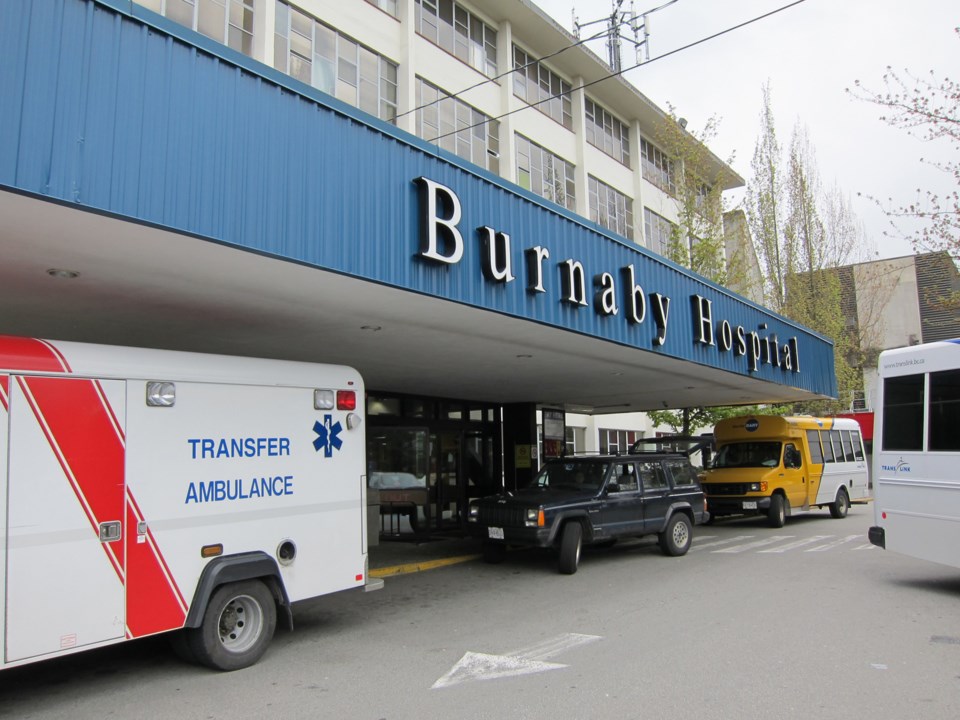Patients looking for help in the midst of a mental-health crisis may soon be able to bypass the hubbub of Burnaby Hospital’s busy, noisy emergency room.
The hospital is working on a business plan for a dedicated mental-health and substance-use space for the emergency department.
“We treat patients with physical and mental-health issues, and with mental-health patients, they come in in crisis, and the emergency department is a very busy, noisy, active place, which may not be the best environment for patients in a mental health crisis,” emergency department head Dr. Donna Sue told the NOW. “Having a dedicated zone would provide a more calming environment.”
The proposal for the dedicated mental-health space is in its early stages, according to Fraser Health spokesperson Tasleem Juma, but should be presented sometime this year.
She said the area would build on the success of the mental-health zone at Surrey Memorial Hospital.
“They’re finding it’s having a very direct impact on the patients that come through, very positive,” said Juma of the Surrey facility.
Burnaby Hospital’s emergency room is one of the busiest ERs in the province, according to Juma, handling nearly 80,000 visits last year.
About four per cent (3,300) were mental-health cases.
That’s up from the year before when the emergency department had about 70,000 visits and about three per cent (2,200) were mental-health related.
Having a dedicated space to deal with these cases would be good for all patients and staff, according to Sue.
“Sometimes mental-health patients are quite disruptive in the department,” she said. “The department can be a very noisy place, and mental-health and substance use patients can add to that.”
While Surrey Memorial’s mental-health zone was built into that hospital’s recent $512-million expansion, it’s unclear as yet how a dedicated mental-health space could be carved out at Burnaby Hospital, parts of which are 60 years old.
“I think there’ll be a bit of an expansion. We did that with supertrack,” said Sue, referring to a $2 million emergency room expansion in 2014 to create a separate ER space for non-urgent patient care. “There’s always possibilities; you just have to be imaginative.”
No proposed budget has been announced yet for the mental-health zone, but the Burnaby Hospital Foundation has already raised funds for the project at its November New York, New York gala fundraiser.
The goal was to raise more than $500,000, but a final figure was not available from the foundation by press time.
Those who work most often with mental-health and substance-use patients at Burnaby’s busy emergency room were on hand at the fundraiser to show their support, according to Sue.
“The emerg physicians as well as the psychiatric department all contributed a good chunk of change,” she said.



